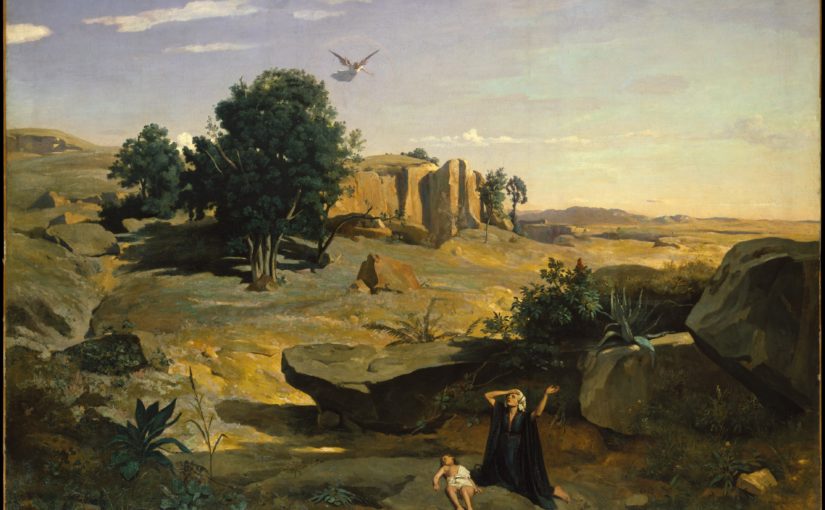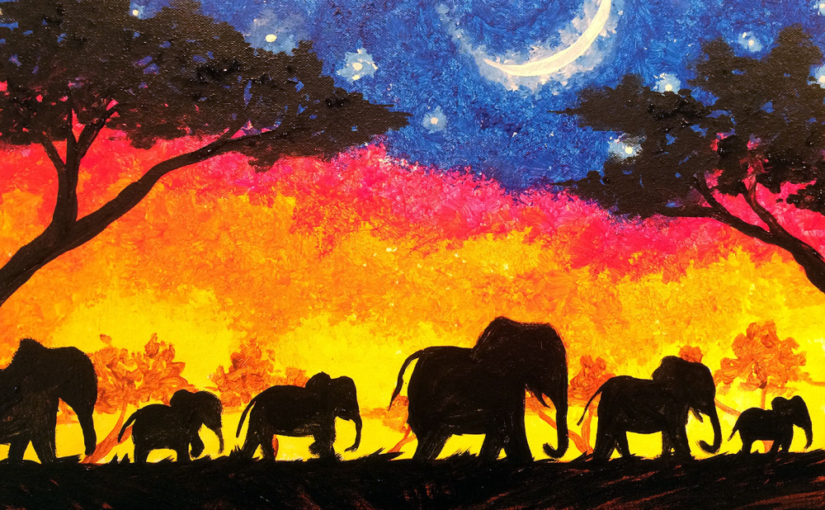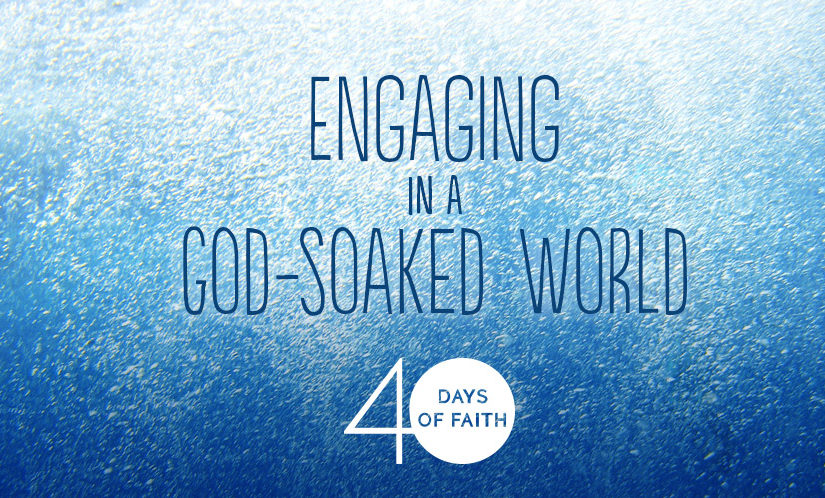Tuesday, March 7 – Genesis 16:1-16
Now Sarai, Abram’s wife, bore him no children. She had an Egyptian slave-girl whose name was Hagar, 2 and Sarai said to Abram, “You see that the Lord has prevented me from bearing children; go in to my slave-girl; it may be that I shall obtain children by her.” And Abram listened to the voice of Sarai. 3 So, after Abram had lived ten years in the land of Canaan, Sarai, Abram’s wife, took Hagar the Egyptian, her slave-girl, and gave her to her husband Abram as a wife. 4 He went in to Hagar, and she conceived; and when she saw that she had conceived, she looked with contempt on her mistress. 5 Then Sarai said to Abram, “May the wrong done to me be on you! I gave my slave-girl to your embrace, and when she saw that she had conceived, she looked on me with contempt. May the Lord judge between you and me!” 6 But Abram said to Sarai, “Your slave-girl is in your power; do to her as you please.” Then Sarai dealt harshly with her, and she ran away from her.
7 The angel of the Lord found her by a spring of water in the wilderness, the spring on the way to Shur. 8 And he said, “Hagar, slave-girl of Sarai, where have you come from and where are you going?” She said, “I am running away from my mistress Sarai.” 9 The angel of the Lord said to her, “Return to your mistress, and submit to her.” 10 The angel of the Lord also said to her, “I will so greatly multiply your offspring that they cannot be counted for multitude.” 11 And the angel of the Lord said to her,
“Now you have conceived and shall bear a son;
you shall call him Ishmael,
for the Lord has given heed to your affliction.
12 He shall be a wild ass of a man,
with his hand against everyone,
and everyone’s hand against him;
and he shall live at odds with all his kin.”
13 So she named the Lord who spoke to her, “You are El-roi”; for she said, “Have I really seen God and remained alive after seeing him?” 14 Therefore the well was called Beer-lahai-roi; it lies between Kadesh and Bered.
15 Hagar bore Abram a son; and Abram named his son, whom Hagar bore, Ishmael. 16 Abram was eighty-six years old when Hagar bore him Ishmael.
Points of Interest:
- Ten years later, Abram and Sarai are no closer to the fulfillment of what they thought God promised when they first arrived in Canaan. Their solution to their barrenness was probably less shocking in their culture than it would be in ours. Slave women were the property of their owners, so using Hagar as a surrogate mother to produce an heir for Abram and Sarai may have seemed reasonable to the couple, regardless of what Hagar may have thought of the arrangement.
- Hagar’s pregnancy apparently creates its own problems. Hagar is of lower social class and is a cultural and perhaps racial outsider to this household. But now she has the honor of pregnancy that Sarai has never experienced. Perhaps she finds ways to rub this in Sarai’s face, or perhaps Sarai projects this behavior out of her own insecurity and jealousy. When Sarai blames Abram for her difficulty, he abdicates any responsibility and tells Sarai to solve her own problem. Perhaps she begins insulting Hagar, perhaps she works the pregnant servant harshly, or perhaps she has her beaten. We don’t know, but the family is a mess, and Hagar’s life in particular is miserable enough that she flees alone to the wilderness.
- Alone and on the run, Hagar has her first experience of a God-soaked world. The word angel means messenger, so Hagar may encounter what she believes to be a spiritual being, or she may talk with a person who meets her by the spring of water, asks her for her story, and then speaks for God.
- The messenger gives what sounds like mixed news. She’s supposed to return to her somewhat abusive household and her son is predicted to grow up to be a difficult man. That said, her dignity is elevated in that God sees and understands all the details of her seemingly insignificant life. Henceforth, she also won’t merely be a slave and surrogate, but the mother of an important person in the world.
- The Egyptian slave Hagar is the first person in the Bible to name God. She doesn’t know what god this messenger speaks for, but she calls this god the “God who sees,” since she knows God sees and knows and has taken an interest in her.
Spiritual Exercise: Hagar’s story tell us God sees and hears us fully, sees all the hard things in our lives, is glad to be with us in them, and can do something about them. Start with your current setting – the room you are in, the clothes you’re wearing, etc. – and say to yourself, “God sees this brown chair. God sees my blue sweater, etc.” Then name to God one challenge in your life. Naming the various aspects of this challenge, say to yourself that God sees and hears each one of them. Tell yourself God is glad to be with you in this. Then ask God how it is that God understands how big this is to you, and how God can help you.
Prayer: Name a large problem your city or country is facing. Practice the above exercise with that issue as well, telling yourself God sees and hears this and is glad to be with you and your community and nation in this. Ask God how God understands how big this is to the people involved and ask God to help them.




